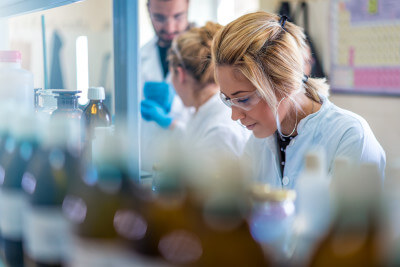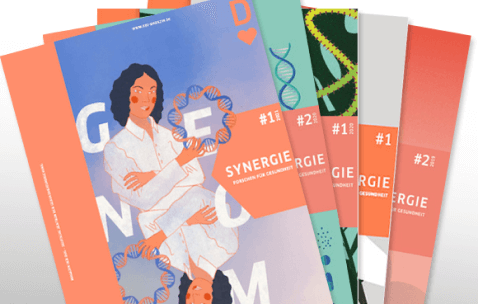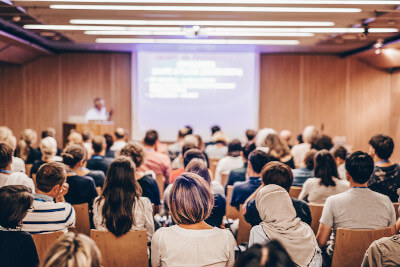Research IT
The Research IT working group harmonizes processes and IT systems between the German Centers for Health Research.
As a network, the DZGs conduct research together. A central role is played by the efficient and secure exchange of data between the differently specialized centers. The data from research, clinical practice and the analysis of biospecimens, like information from basic research, is complex and heterogeneous. To ensure that these high-dimensional data can be collected and processed in a standardized manner, they are gathered in the DZG according to the FAIR principle. This acronym stands for four central principles of data processing: The data should be easy to find (Findable), easy to access (Accessible), compatible with each other (Interoperable) and above all, reusable (Reuseable). To ensure this, the DZG want to bring together their processes and tools for data protection-compliant research IT into a common IT platform.
The goal is to use intelligent data management to accelerate the acquisition of knowledge about common and rare diseases, to reduce the number of patient examinations required, and to jointly explore new avenues for the diagnosis and treatment of serious diseases.
Selection of joint DZG IT projects

The SARS-CoV 2 pandemic has been a major challenge for medical professionals worldwide, with a daily increase of new infections. Currently, there is a gap of knowledge regarding the best possible clinical management of the infection as well as the prediction and prevention of severe outcomes. We initiated the Lean European Open Survey on SARS-CoV 2 (LEOSS) project, a prospective European multi-center cohort study, to get more in-depth knowledge about the epidemiologicaly and clinical course of the disease patients infected with SARS-CoV 2. Our goal is was to establish a quick and simple register that allows anonymous documentation of patients. The study will allow retrospective inclusion of patients treated before the initiation of the study. The obtained data can be used to identify is suitable to address different research questions such as identifying the independent predictors of outcome in patients with diagnosed with infection by SARS-CoV 2. The Data Use and Access Policy developed within the LEOSS community allows a dynamic and fast scientific use of the data while maintaining high scientific quality as well as responsible public communication.

DZDconnect—a knowledge graph that links data from basic research and clinical studies across sites, disciplines and species with external knowledge. DZDconnect collects, structures, interconnects and makes available various data and information on wide-spread diseases and its long-term complications. Information from well-established databases is connected on the metadata level, raw data level as well as on the insight level. In addition, in-house data from translational research can be integrated. The enabling technology is a flexible and scalable graph database. DZDconnect thus bridges the gap between healthcare research and state-of-the-art information technology and helps to make disease research faster and more efficient. With DZDconnect scientists can quickly and efficiently generate hypotheses regarding the underlying mechanisms of these diseases and how to intervene medically. DZDconnect is developed as an open-source project.

DSS is a General Data Protection Regulation (GDPR) compliant data transfer service for pseudonymised/anonymized data, based on nextcloud. The core ideas are: Logging of every sharing event (metadata and provenance), encryption of storage to prevent data leakage on server side, auto deletion of files after certain time limit (according to data protection regulations).
Link to Concept whitepaper
Link to Technical setup

Informatics for Integrating Biology and the Bedside (i2b2) is a data framework developed by Harvard University to support clinical research. The tool can be used to identify patient cohorts, run feasibility queries to determine study feasibility, and to perform retrospective data analysis on available data.
For the backend, the database scheme is divided into (1) clinical data in form of listings of patients, encounters and observations and (2) metadata describing and structuring clinical concepts in a metadata-tree/thesaurus. The user interface is a query builder, allowing to connect clinical concepts with AND and OR operations as well as temporal relations. The query results are aggregated information about the patient cohort fulfilling the given criteria.
For the DZL, i2b2 serves as a central data warehouse, in which clinical data from all five participating sites and over 60 single data sources is integrated. The clinical data is complemented with information about available biomaterial, imaging data, and \*OMICS data. The concept tree used for building queries is derived from our Collaborative Metadata Repository (CoMetaR).
www.i2b2.org

CoMetaR is a tool for editing, versioning, visualizing and sharing biomedical metadata with respect to FAIR principles and established standards. Data is stored as RDF (unicode textfiles), a flexible W3C standard for describing any resource of the WWW. The data is versioned through Git, which also allows the extraction of provenance information about the stored metadata. A web application allows users to search and browse the whole metadata tree.
A standardized interface (SPARQL) allows queries on the metadata. For modeling the thesaurus, we use W3C SKOS as well as further standards for metadata annotation, such as Dublin Core. By using standard vocabularies, a standard query interface and international codes from terminologies like SNOMED-CT, ICD-10 and LOINC, our metadata is highly interoperable.


- Markus Brechtel (DZIF)
- Dr. Steffen Cordes (DZHK)
- Daniel Erkan (DZNE)
- Meike Fünderich (DZL)
- Silke Greuel (DZNE)
- Dr. Stephanie Heinen (DZIF)
- Dr. Julia Hoffmann (DZHK)
- Jori Kern (DKTK)
- Prof. Dr. Martin Lablans, deputy speaker (DKTK)
- Dr. Raphael Majeed, speaker (DZL)
- Dr. Annika Spottke (DZNE)
- Prof. Dr. Jörg Janne Vehreschild (DZIF)
- Nils Opel (DZPG)
- Nikolaos Koutsouleris (DZPG)
- Dr. Lars Oest (DZD)
- Angela Dedié (DZD)
- Tim Bleimehl (DZD)







